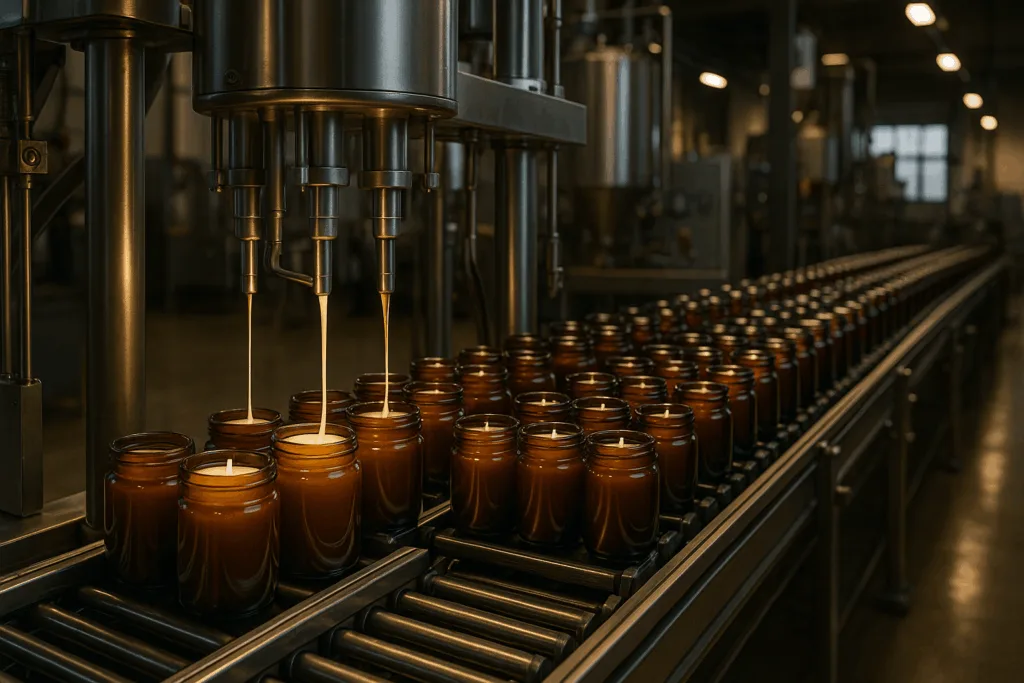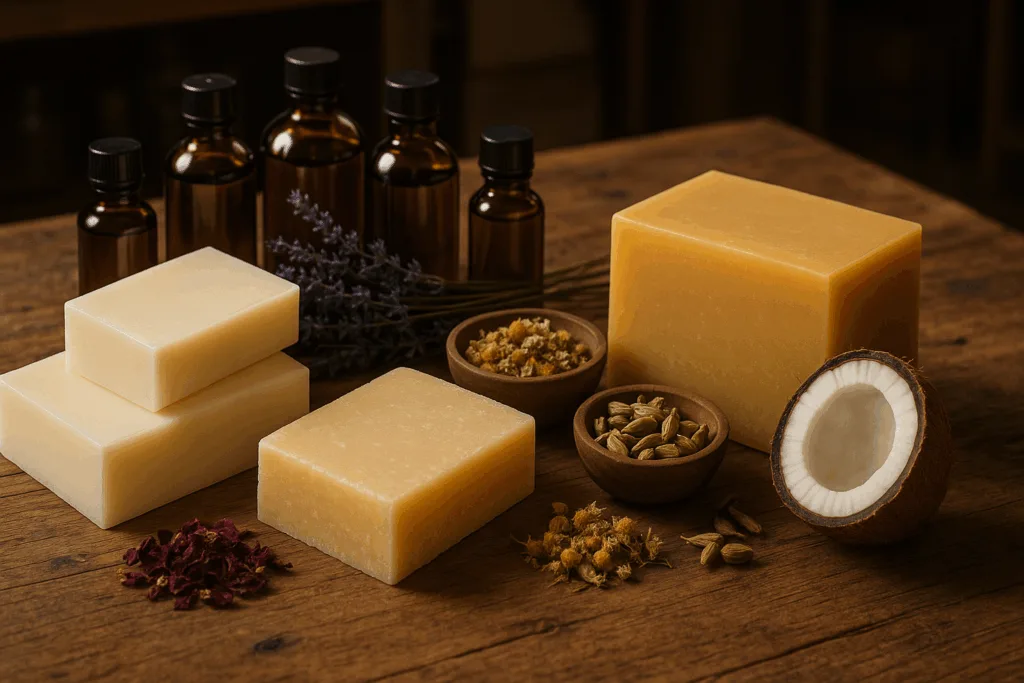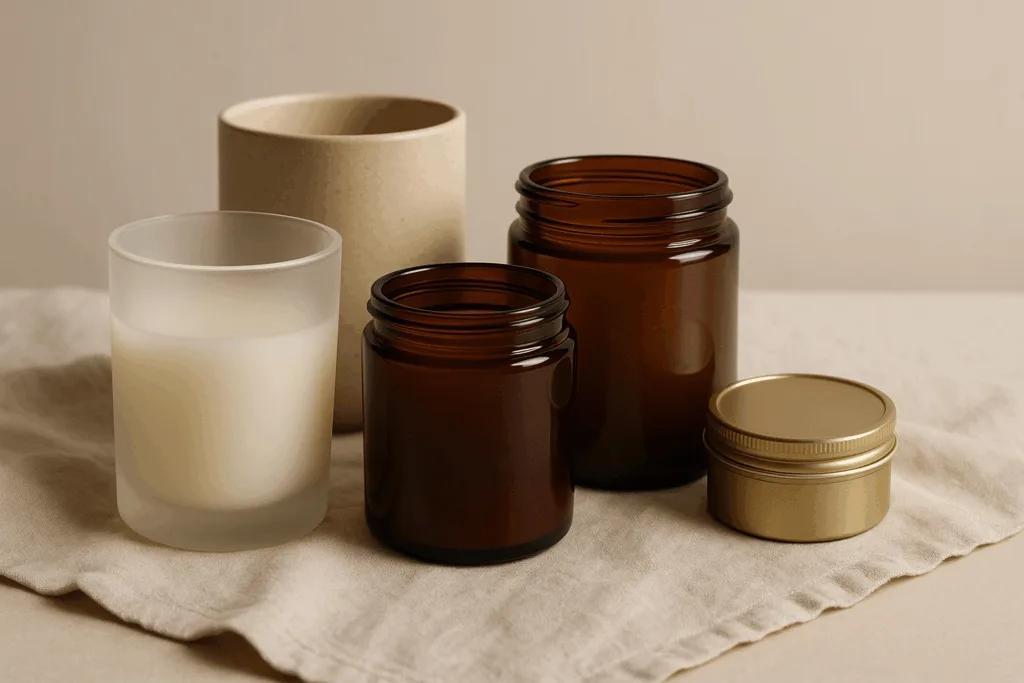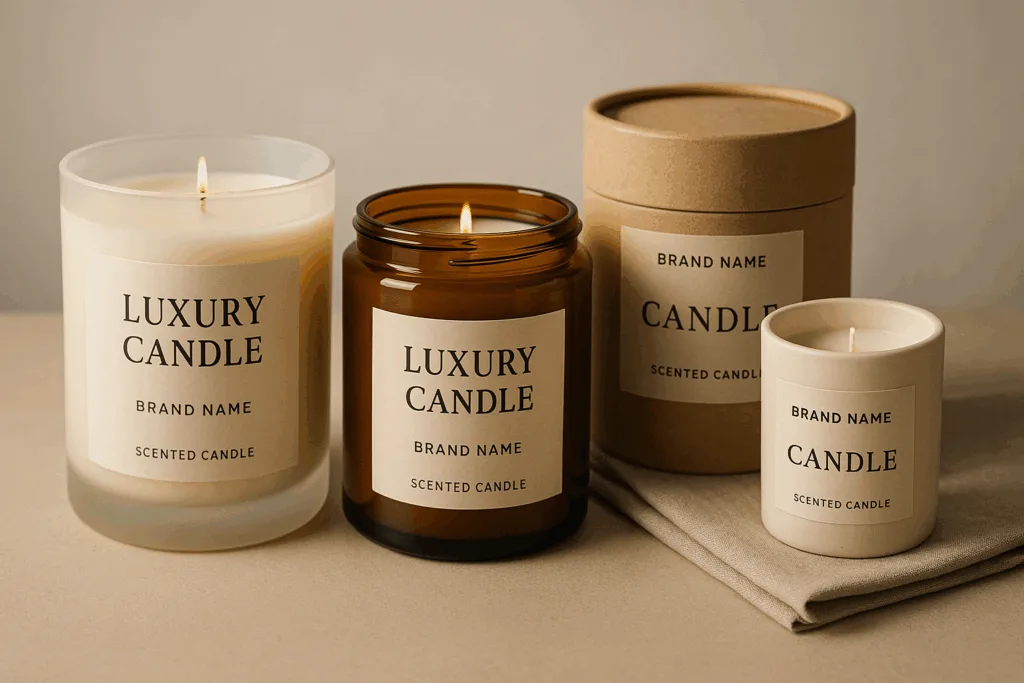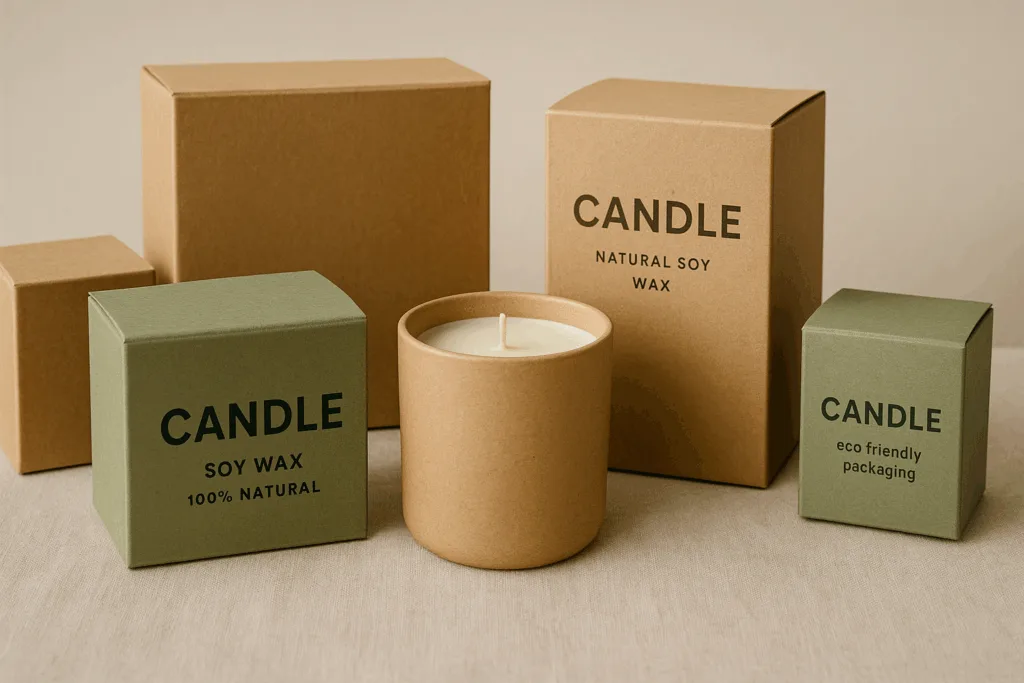Introduction: The Growing Demand for Jar Candles in Modern Homes
Soft light flickers through translucent glass, warmth radiates from a steady flame, and scent curls through the air like silk. The jar candle is more than decor—it’s an atmosphere, a moment of calm, a brand identity contained within glass. As the global home fragrance market continues its rapid ascent, brands are asking a crucial question: how to choose the right jar candle manufacturer.
For businesses in the home fragrance sector, finding a manufacturer is not merely a logistical task. It is a creative collaboration that shapes how a candle looks, feels, and performs. The right partner ensures consistency, sustainability, and design excellence—cornerstones of success in today’s competitive candle market.
At Circe Home, we view jar candle manufacturing as an art of balance: sensory beauty and technical precision. This guide dives deep into every factor to consider when selecting a manufacturer—from wax chemistry and wick design to private label packaging and eco-ethical sourcing.
Understanding Jar Candle Manufacturing
What Makes a High-Quality Jar Candle?
A premium jar candle balances fragrance throw, clean burn, and visual presentation. The manufacturing process must ensure:
- Even burning without tunneling or soot.
- Consistent scent diffusion, hot and cold.
- Durable containers that withstand temperature fluctuations.
- Safe wick alignment for optimal burn.
These elements combine craftsmanship and chemistry, ensuring every candle performs beautifully from the first light to the last.
The Importance of Material Selection
Choosing materials directly impacts product quality and brand perception. High-quality soy, coconut, or beeswax bases deliver superior scent performance and sustainability. Similarly, choosing heat-resistant glass jars or ceramics can elevate perceived value.
Why Jar Design Influences Brand Identity
Jars are the face of your candle. They tell your story through texture, finish, and shape. Frosted glass communicates calm minimalism; amber jars evoke rustic warmth; ceramic vessels whisper luxury. A skilled jar candle manufacturer understands how design communicates brand emotion.
Industry Insight: The Global Candle Market
Current Trends in Candle Manufacturing
The candle industry exceeds $9 billion globally and continues to expand, driven by wellness, aesthetics, and gifting. Consumers seek candles that align with personal values—eco-conscious, artisanal, and cruelty-free. Manufacturers must now offer transparency, clean ingredients, and design innovation.
Sustainability and Clean-Burning Movements
Today’s candle buyers demand natural waxes, lead-free wicks, and phthalate-free fragrances. Brands choosing manufacturers who follow sustainable candle production principles gain consumer trust.
Why Brands Are Moving Toward Private Label Candle Production
Private labeling empowers brands to create signature scents and designs without investing in production infrastructure. A reliable private label candle manufacturer ensures creative flexibility and production scalability—vital for boutiques, retailers, and wellness brands.
Wax & Fragrance Selection
Comparing Soy, Coconut, Beeswax, and Blends
| Wax Type | Characteristics | Sustainability |
|---|---|---|
| Soy Wax | Clean burning, great scent throw | Renewable, biodegradable |
| Coconut Wax | Luxurious, smooth finish | Sustainable, slow-burning |
| Beeswax | Natural, emits negative ions | Ethically sourced, limited supply |
| Blended Wax | Balanced performance | Varies by formulation |
Each wax type offers unique sensory benefits. Soy and coconut remain top choices for brands seeking eco-friendly luxury.
How Fragrance Load Affects Scent Throw
The fragrance load (usually 6–10%) defines how strongly a candle scents a space. Manufacturers must balance oil concentration to avoid overpowering or underperforming candles.
Balancing Natural Ingredients with Performance
Natural essential oils appeal to eco-conscious consumers but may require blending with synthetic aroma molecules to enhance longevity and diffusion.
Choosing the Right Jar Material
Glass, Ceramic, and Tin Options
The jar material dictates heat distribution, durability, and aesthetics.
- Glass: Timeless and transparent.
- Ceramic: Textured, luxurious, and reusable.
- Tin: Lightweight and travel-friendly.
Heat Resistance, Aesthetics, and Branding Considerations
Always verify a jar’s heat tolerance. The surface finish—matte, glossy, tinted—can amplify brand mood.
Recyclable and Refillable Jar Options
Modern consumers value sustainability. Offering refillable jars or recyclable containers strengthens brand loyalty and environmental responsibility.
The Role of Wicks in Jar Candles
Cotton vs. Wooden Wicks
Cotton wicks burn steadily; wooden wicks crackle with ambiance. The choice depends on your brand’s aesthetic and target market.
Burn Consistency and Safety
The wick must match the jar diameter and wax formula. A mismatched wick can cause soot, tunneling, or overheating.
The Subtle Art of Wick Testing
Manufacturers should conduct multiple test burns to achieve ideal flame height and melt pool.
How to Evaluate a Jar Candle Manufacturer
Experience and Expertise
Look for manufacturers with proven track records, preferably serving both boutique and global brands.
Sampling and Quality Assurance
Request sample candles to assess scent diffusion, wax adhesion, and burn quality.
Minimum Order Quantities and Scalability
Scalable production ensures smooth transitions from small-batch artisan runs to wholesale orders.
Customization & Private Labeling Options
Label Design and Printing
Your candle’s label is its voice. Manufacturers offering in-house design can ensure visual cohesion.
Packaging That Reflects Brand Personality
Packaging should mirror the essence of your brand—minimalist, bohemian, or luxury-inspired.
Luxury vs. Minimalist Branding Strategies
A luxury candle might use embossed boxes and metallic lids; minimalist lines favor matte jars and kraft labels.
Circe Home’s Manufacturing Process
At Circe Home, craftsmanship meets calm. Every candle is hand-poured in small batches with precision and care.
Step-by-Step Look into Handcrafted Production
- Wax Selection: Sustainably sourced soy and coconut wax.
- Melting & Blending: Temperature-controlled infusion with fine fragrance oils.
- Wicking: Centered and tested for even burn.
- Pouring: Poured at ideal temperatures to prevent sinkholes.
- Curing: 10–14 days for scent stabilization.
- Finishing: Hand-polished jars and branded labels.
Sensory Quality Control
Each batch undergoes scent evaluation, burn testing, and visual inspection.
Collaborative Product Development
Circe Home partners with brands to co-create signature scent stories and vessel designs.
Sustainability Practices
Eco-Friendly Wax and Packaging
Circe Home prioritizes biodegradable waxes, recyclable jars, and minimal waste.
Ethical Sourcing and Zero Waste Production
Suppliers adhere to fair trade principles and low-impact manufacturing.
Partnering with Green-Certified Suppliers
We align with eco-certified partners to ensure every component—from wick to box—meets environmental standards.
Case Study: A Successful Brand Collaboration
A boutique wellness brand approached Circe Home seeking a private-label candle line reflecting mindfulness and sustainability. We developed custom ceramic jars, formulated botanical-inspired scents, and delivered a cohesive brand experience. Within six months, the client saw a 40% sales increase and expanded into international markets.
Common Mistakes When Choosing a Candle Manufacturer
- Ignoring small test runs before mass production.
- Prioritizing cost over quality.
- Failing to request documentation (MSDS, IFRA compliance).
- Neglecting fragrance consistency checks.
Avoiding these errors ensures a seamless partnership and consistent candle performance.
Consumer Appeal & Market Positioning
The Psychology of Candle Buying
Candles fulfill emotional needs—comfort, romance, mindfulness. Scents evoke memory and mood.
Building Emotional Connections Through Scent
A manufacturer skilled in fragrance blending can translate emotion into aroma—lavender for calm, cedar for strength, citrus for joy.
Aligning Brand Story with Lifestyle Aesthetics
Every element—jar, scent, color—should harmonize with your brand’s identity.
Quality Testing & Certifications
Ensure your manufacturer complies with:
- IFRA (International Fragrance Association) standards.
- ASTM (American Society for Testing and Materials) safety protocols.
- CPSR documentation for European markets.
These certifications protect both your brand and consumers.
The Future of Jar Candle Manufacturing
Automation merges with artistry. AI-driven scent prediction, biodegradable waxes, and transparent supply chains define the next era. Brands that embrace sustainability and storytelling will lead the market.
Conclusion & Call to Action
Choosing the right jar candle manufacturer is a journey of trust, creativity, and craftsmanship. With Circe Home, your brand gains a partner dedicated to ethical sourcing, impeccable quality, and sensory storytelling.
Partner with Circe Home to create candles that illuminate not only homes but hearts.
FAQs
What should I look for in a jar candle manufacturer?
Experience, sustainability practices, customization options, and quality testing are key factors.
Why is sustainability important in candle production?
Consumers demand eco-conscious brands; sustainable waxes and packaging elevate brand image.
Can I create custom fragrances for my brand?
Yes. Private label manufacturers like Circe Home collaborate to craft signature scents.
What materials are best for jar candles?
Heat-resistant glass, ceramic, or tin with soy or coconut wax blends provide the best performance.
How can I ensure consistent scent throw?
Work with manufacturers who conduct fragrance load testing and proper curing.
What are common red flags when choosing a manufacturer?
Lack of transparency, inconsistent samples, or absence of compliance certificates.

